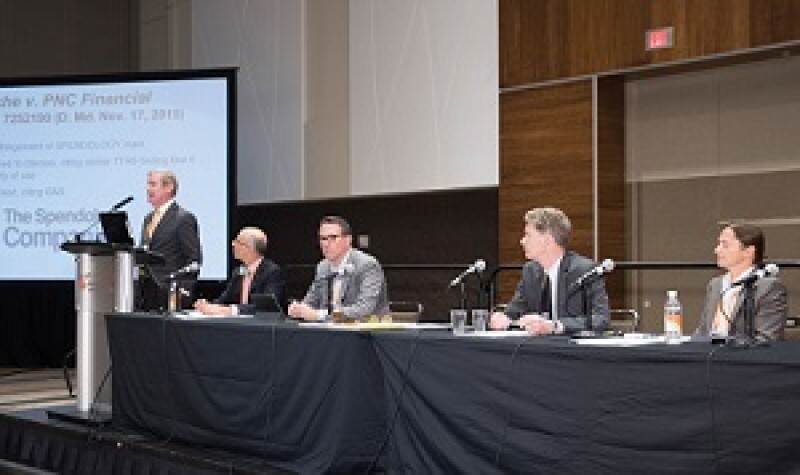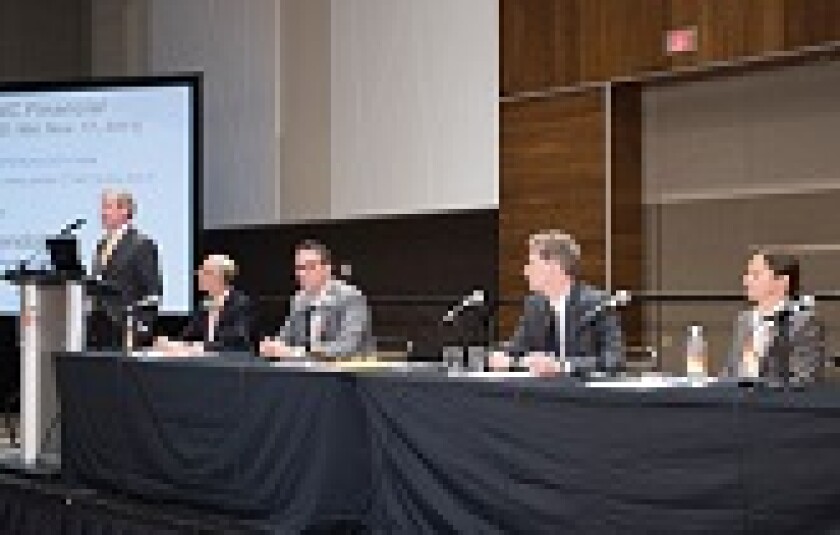
The Supreme Court held that: “So long as the other ordinary elements of issue preclusion are met, when the usages adjudicated by the TTAB are materially the same as those before a district court, issue preclusion should apply.”
Moderator David Bernstein of Debevoise & Plimpton in the U.S. noted that the consequences for a refusal to register may now be much greater because of the risk of preclusion being found. He asked whether applicants are now more likely to seek de novo review at the district court instead of taking an appeal right up to the Federal Circuit.
“Absolutely,” said Anthony Dreyer of Skadden Arps Slate Meagher & Flom in the U.S. “There are far greater consequences now. The circumstances where a likelihood of confusion determination will have a preclusive effect is rare but certainly findings about priority of use–as we have seen already being applied–and other potentially important factual issues that could be dispositive on a subsequent infringement case, now scream for de novo review if you are on the losing side.”
Peter Harvey of Harvey Siskind in the U.S. agreed but added: “My concern is that the original conception of what the TTAB its court proceedings was designed to do will morph into something much more than that. I worry that we will see ourselves putting more resources than was even thought about in the past.”
Harvey noted that there was not much guidance in terms of cases yet. He gave a presentation revealing that seven district court trademark cases have cited B&B.
Bernstein said one of the great benefits of litigating at the TTAB is it is much more limited, with little discovery and no actual trial in many cases.
The TTAB itself may also have to adjust. Gerard Rogers, its chief judge, said the B&B ruling was positive for the Board. “It is not true that judges ran around high fiving each other, but that’s mostly because they work at home so I had no one to high five,” he joked. He said the TTAB is not planning any changes as a result of B&B, including to its recently-published proposed rule changes.
The Supreme Court recognized that preclusion will be very rare in confusion cases, but it is more likely in other issues such as priority, fraud, genericness and functionality. “There’s no doubt that, at minimum, B&B changes the calculus for those involved in Board proceedings,” said Rogers.
He added, however, that increasing the discovery taken was not necessary or useful, and neither was having more evidence on us: “So there is little reason to change the trial strategy.”
Anna Carboni of Redd Solicitors in the U.K. gave an overview of similar case law in Europe. Her conclusions were that: oppositions proceedings are not binding but they may influence a later tribunal, so practitioners should be careful not to contradict themselves; invalidity proceedings may be binding, even where you don’t expect it, so think carefully about the possibility of a later attack on use; and IPO proceedings remain much more streamlined and cheaper than court proceedings, but don’t be too reluctant to treat them like litigation in an appropriate case.










